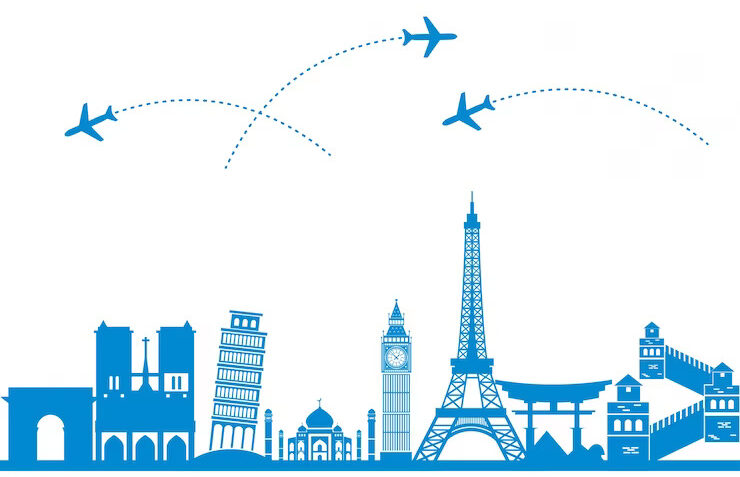Staying Ahead of the Competition: Embracing Technological Advancements in the Travel Industry
Travel businesses face unique challenges in a fast-growing industry worth a projected $691 billion by 2026. Customers, particularly millennials, expect personalized and seamless digital experiences, forcing travel companies to prioritize fast and intuitive digital experiences using big data and software solutions for tourism. Additionally, the pandemic has led to increased workloads and reduced staff, making it challenging to provide excellent customer service. Many businesses use software solutions for tourism to automate routine customer requests, optimize operational processes, and generate accurate reports.
What you will know:
- What is travel agency and tour operator software, and why is it essential?
- Different types of software for travel agencies and what they do
- The difference between travel agencies and tour operators and which type of software each needs
- How travel agency software can benefit your business, and why you need it
- Tips for choosing the right travel agency software development company
- Why COAX is the best choice for travel software development
- Case studies of our successful travel agency software development projects
- Final thoughts and sources of information
The COAX team has created an article covering popular travel industry solutions, optimizing processes, and choosing the right software solutions for tourism. The report covers billing, invoicing, and accounting software, tour and itinerary building software, and customer relationship and marketing management systems. Custom software is crucial in satisfying individual needs, protecting against cyber-attacks, integrating with existing programs, and adjusting to changing conditions.
It’s worth noting that the COVID-19 pandemic has significantly impacted the travel industry, causing many businesses to pivot their operations and prioritize safety measures. In addition, the pandemic has accelerated the adoption of digital technologies in the travel industry, as more customers are turning to online platforms for travel planning and booking. As a result, travel agencies and tour operators must prioritize technology to stay competitive in the industry and meet the evolving needs of their customers.
Furthermore, with the rise of sustainable tourism, more travel agencies and tour operators are focusing on eco-friendly practices and offering sustainable travel options to their customers. Therefore, travel agencies and tour operator software should prioritize sustainability by providing features that allow businesses to track their carbon footprint and implement environmentally conscious practices.
It’s important to note that choosing the right travel agency software development company can make all the difference in the success of a business. The company should have a track record of successful projects, be experienced in the travel industry, and have a flexible and scalable development process. Ultimately, investing in quality software can lead to increased profitability, improved customer satisfaction, and reduced operational costs for travel businesses.
Sources of information for staying up-to-date with the latest travel industry trends and technologies include industry conferences, online publications, and market research reports. Travel businesses need to stay informed and adapt to the changing landscape of the industry to remain competitive and meet the needs of their customers.
Tour operators negotiate with hotels, airlines, transport companies, and guides and are responsible for the tourist during their vacation. The best tour operator software should provide features such as creating tours and routes, pricing based on travel routes, duration, and the number of tourists, tour scheduling software, and booking and payment travel management solutions that synchronize with partners. Additionally, tour operators should be able to collect customer data and analytics to improve their future offerings.
Travel agencies sell tours to clients, identifying their needs and creating attractive offers based on their budgets and wishes. Thus, the goal of a travel agency is to attract the target audience and optimize internal processes. The crucial functions of travel agency software include connecting to a tour operator’s database, online reservation and booking, different payment options, optimization of operational and accounting tasks, and collecting client data and analysis. Marketing activities are also a critical function of travel agency software.
In recent years, the tourism industry has been rapidly changing due to technological advancements and the rise of online travel agencies. As a result, tour operators and travel agencies need to adapt to these changes and stay up to date with the latest trends and technologies. For example, many tour operators and travel agencies are now using social media platforms and influencer marketing to reach a broader audience and increase brand awareness. Additionally, virtual and augmented reality technologies are being utilized to provide customers with a more immersive and interactive travel experience. It’s essential for tour operators and travel agencies to embrace these changes and incorporate them into their business strategies to remain competitive in the industry.
In addition to the mentioned features, the best tour operator software should also offer a customer relationship management (CRM) system that enables tour operators to manage customer interactions and relationships effectively. A sound CRM system should help tour operators understand their customers’ preferences and behaviors, track customer interactions and communication, and personalize their offerings and services based on their interests and feedback. By using a CRM system, tour operators can improve their customer retention rates and increase customer satisfaction levels, leading to increased profitability for their business.
The benefits of using a travel agency and tour operator software include:
- Efficient billing, invoicing, and accounting
- Tours planning is made easy with itinerary-building software
- Better customer relationship management (CRM) and marketing management systems
- Reduced operational costs, time management, supplier databases, and client management
- Lower accounting fees
- Improved customer satisfaction
- Increased profitability
The different types of software for travel agencies and tour operators include:
- Billing, invoicing, and accounting software
- Tour and itinerary-building software
- Customer relationship and marketing management software
- Tour operator software
- Travel agency software
When choosing the right travel agency software development company, consider the following:
- Experience and expertise
- Customer reviews and ratings
- Development process and methodology
- Cost and budget
- Flexibility and scalability
In conclusion, travel agency and tour operator software solutions are essential for businesses to optimize their processes and provide excellent customer service. Custom software is necessary to meet individual needs, protect against cyber-attacks, and easily integrate with programs that businesses are already using. With the right software development company, businesses can increase profitability, improve customer satisfaction, and reduce operational costs.


















